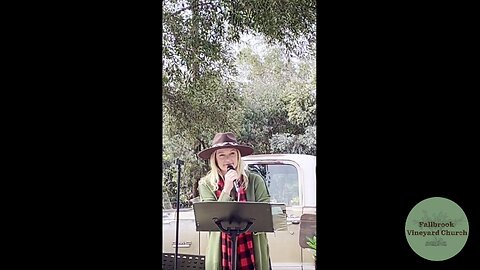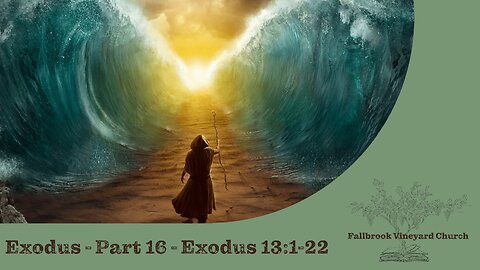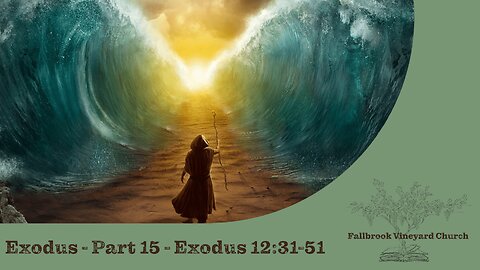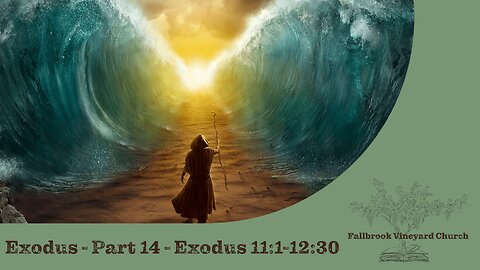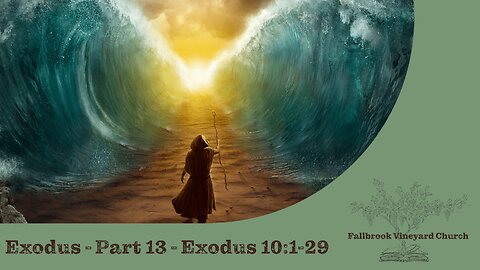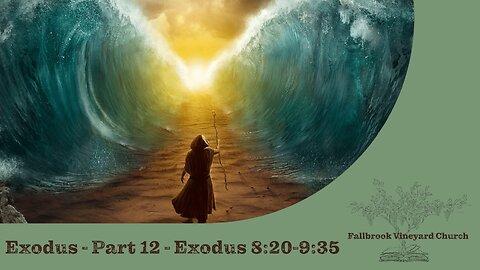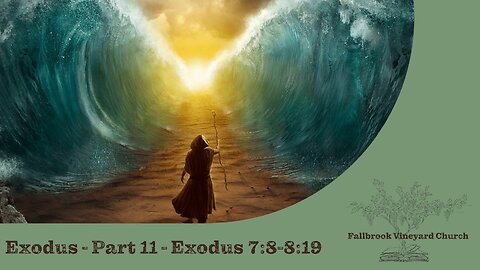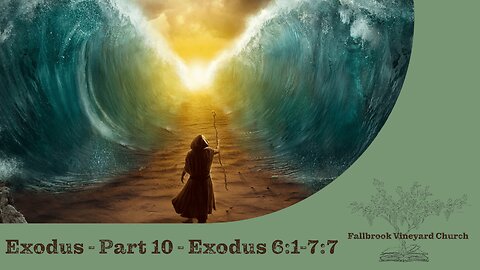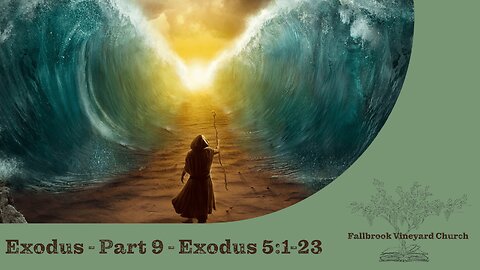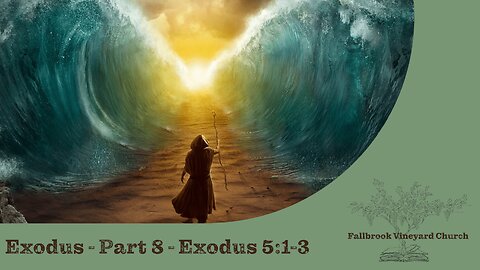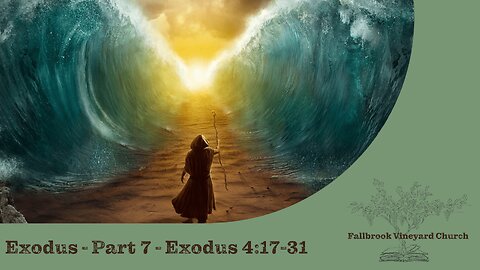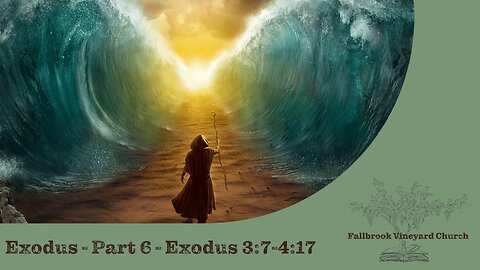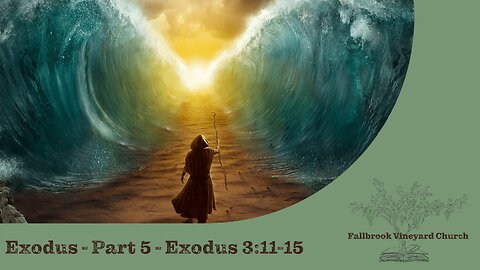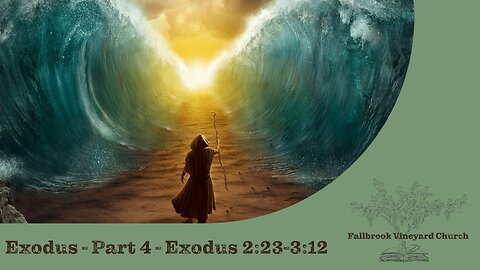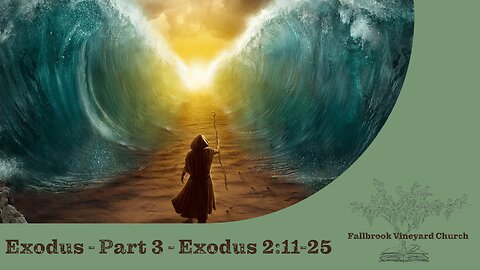Premium Only Content
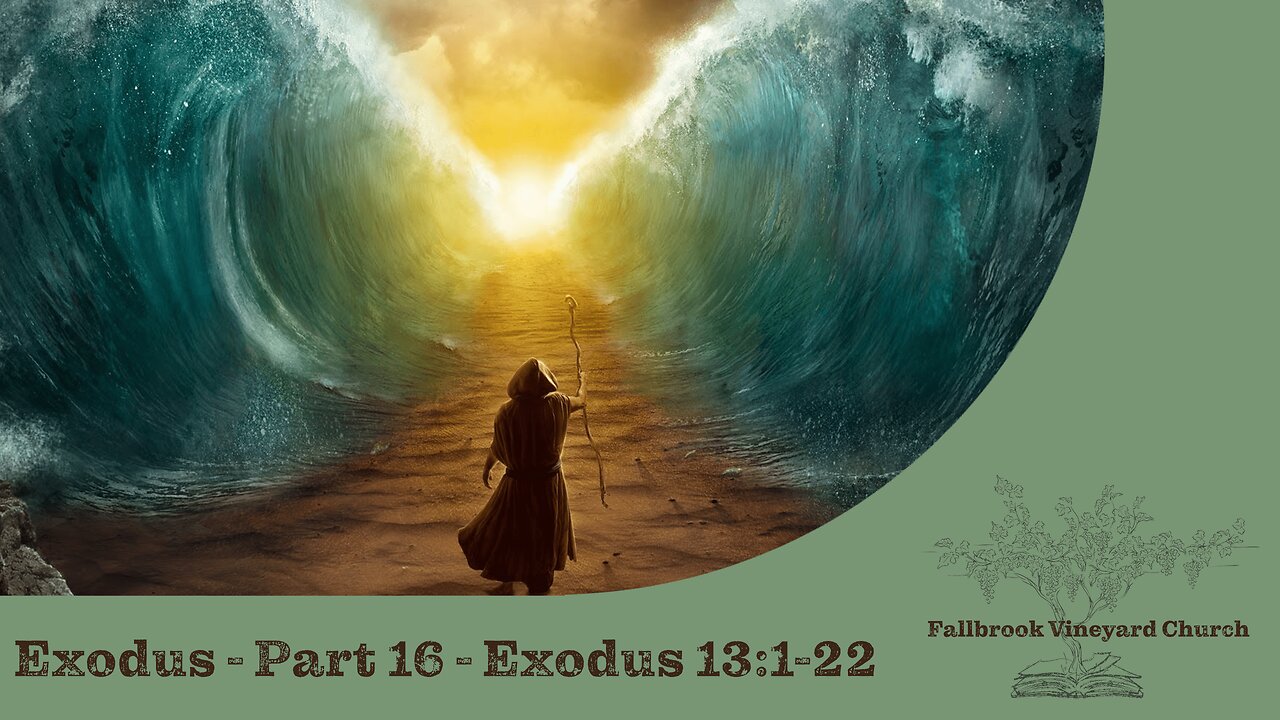
You Can Ignore God All You Want
Exodus - Part 16 - Exodus 13:1-22
Exodus - Part 15 - Exodus 12:31-51
Exodus - Part 14 - Exodus 11:1-12:30
Exodus - Part 13 - Exodus 10:1-29
Exodus - Part 12 - Exodus 8:20-9:35
Exodus - Part 11 - Exodus 7:8-8:19
Exodus - Part 10 - Exodus 6:1-7:7
Exodus - Part 9 - Exodus 5:1-23
Exodus - Part 8 - Exodus 5:1-3
Exodus - Part 7 - Exodus 4:17-31
Exodus - Part 6 - Exodus 3:7-4:17
Exodus - Part 5 - Exodus 3:11-15
Exodus - Part 4 - Exodus 2:23-3:12
Exodus - Part 3 - Exodus 2:11-25
Exodus - Part 2 - Chapter 1:1-2:10
Exodus - Part 1 - Introduction
Exodus - Part 16 - Exodus 13:1-22
Exodus 13 is one of those chapters in between major events in Exodus. Nevertheless, nothing in God’s Word is put where it is by accident and this chapter is no accident. The Israelites are continuing their journey out of Egypt. As they go, God commands Moses to consecrate every firstborn, human or animal, because they belong to God. Consecration is and was an act of setting apart and removing any contamination that would interfere with a relationship with a perfect God. By consecrating the firstborn, the Israelites were pledging the entire nation to God. It would also remind them of the Passover, where God sent the Plague of Death that killed all the firstborn of Egypt, but all the firstborn of the Israelites were spared.
Through Moses, God institutes the Feast of Unleavened Bread. Once the Israelites reached the land that God promised to Abraham, they were to celebrate this feast every year. It was to remind the Israelites how they were rescued by God and had to leave Egypt in haste. Leaven or yeast is also a picture of sin seen throughout the Bible. A little leaven added to bread spreads quickly throughout the dough, causing it to rise. A little bit of sin quickly corrupts our lives and our relationship to God.
Then God gives some further instructions regarding the law of the firstborn. Every firstborn belonged to the Lord. Among the animals, donkeys were unclean, so they needed to be substituted with a lamb. Otherwise, the animal would have to be killed. Firstborn children were also to be redeemed with treasure or money. All this was to be done so that the Israelites throughout their generations would tell the story of how God killed all the firstborn of the Egyptians and rescued them. God wanted them to always remember this event in their history. Unlike the first section of this chapter, this section is about redemption. It is the act of saving someone from sin or captivity by making a substitution or paying a price.
God then led the Israelites to their next destination out of Egypt from Succoth to Etham which was on the edge of the wilderness around the Red Sea. The shortest route to their destination was through the land of the Philistines. God knew that if they went that way, the Israelites would encounter both Philistine and Egyptian armies and likely turn around and go back to Egypt rather than fight. So, God led them by a pillar of cloud by day and a pillar of fire by night and took them to the Red Sea.
All this lays out a roadmap for our relationship with God today. We have to choose to set ourselves apart or be consecrated. We have to remove the leaven, or sin from our lives. We have to be redeemed by the blood of The Lamb, who is Jesus Christ. And, we should never forget what God has done for us through Christ. We should remind ourselves daily. We also need to follow God’s direction for our lives. God sometimes takes us the longer way around to reach the destination He has for us, and we tend to not like that. But God ultimately knows what trouble lies on the route that looks shorter and easier to us. When we choose to follow God’s path instead of our own, that takes faith and leads to a deeper relationship with God.
-
 1:00:28
1:00:28
The Dan Bongino Show
3 hours agoTrump’s Most Important Fight To Date (Ep. 2415) - 02/04/2025
486K639 -
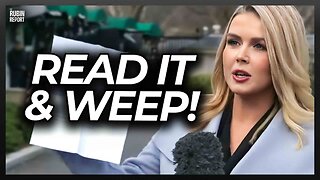 59:44
59:44
The Rubin Report
2 hours agoPress Gasps When Shown What USAID Spent Money On
53.8K32 -
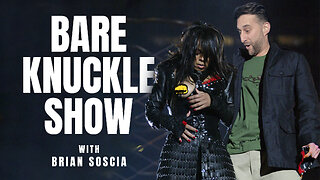 LIVE
LIVE
Bare Knuckle Fighting Championship
3 hours agoThe Bare Knuckle Show with Brian Soscia
227 watching -
 LIVE
LIVE
The Shannon Joy Show
3 hours ago🔥SHOCK Report - The COVID Dossier! A Coordinated Global Military Operation: Live EXCLUSIVE W/ Sasha Latypova & Debbie Lerman.🔥
499 watching -
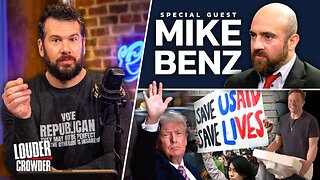 1:57:04
1:57:04
Steven Crowder
4 hours ago🔴 USAID Exposed: Everything You Need to Know Featuring Mike Benz
301K165 -
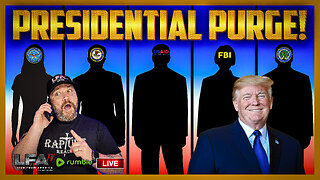 LIVE
LIVE
LFA TV
17 hours agoCLEANING HOUSE!! | LIVE FROM AMERICA 2.4.25 11am
5,610 watching -
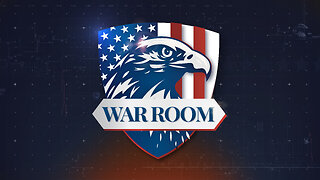 DVR
DVR
Bannons War Room
1 year agoWarRoom Live
111M -
 2:07:20
2:07:20
Matt Kohrs
12 hours agoTrump Pump Returns, Palantir (PLTR) Dominates & Breaking News || The MK Show
68.5K4 -
 12:11
12:11
EvenOut
13 hours ago $1.53 earnedTaking Pictures of Strangers, Then Appearing With Their Printed Photo Twin Prank
31.9K7 -
 32:11
32:11
BonginoReport
6 hours agoWinning: Trump Forces Canada and Mexico Into Total Surrender (Ep.132) - 02/04/2025
149K111
